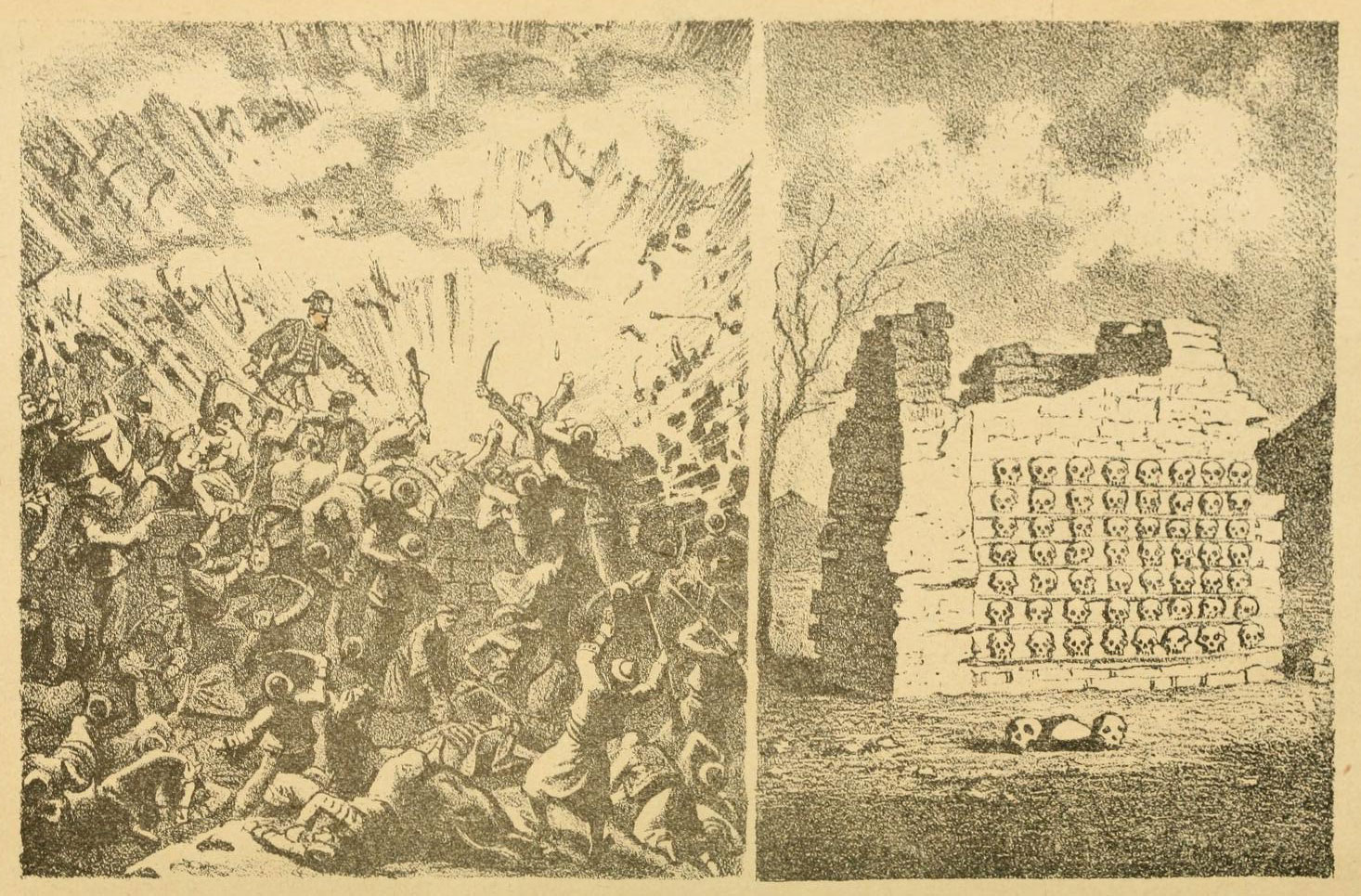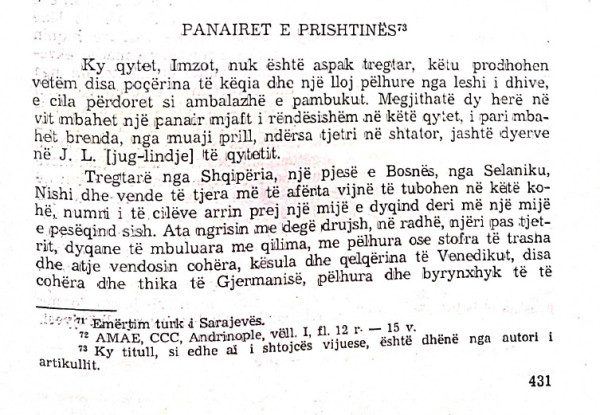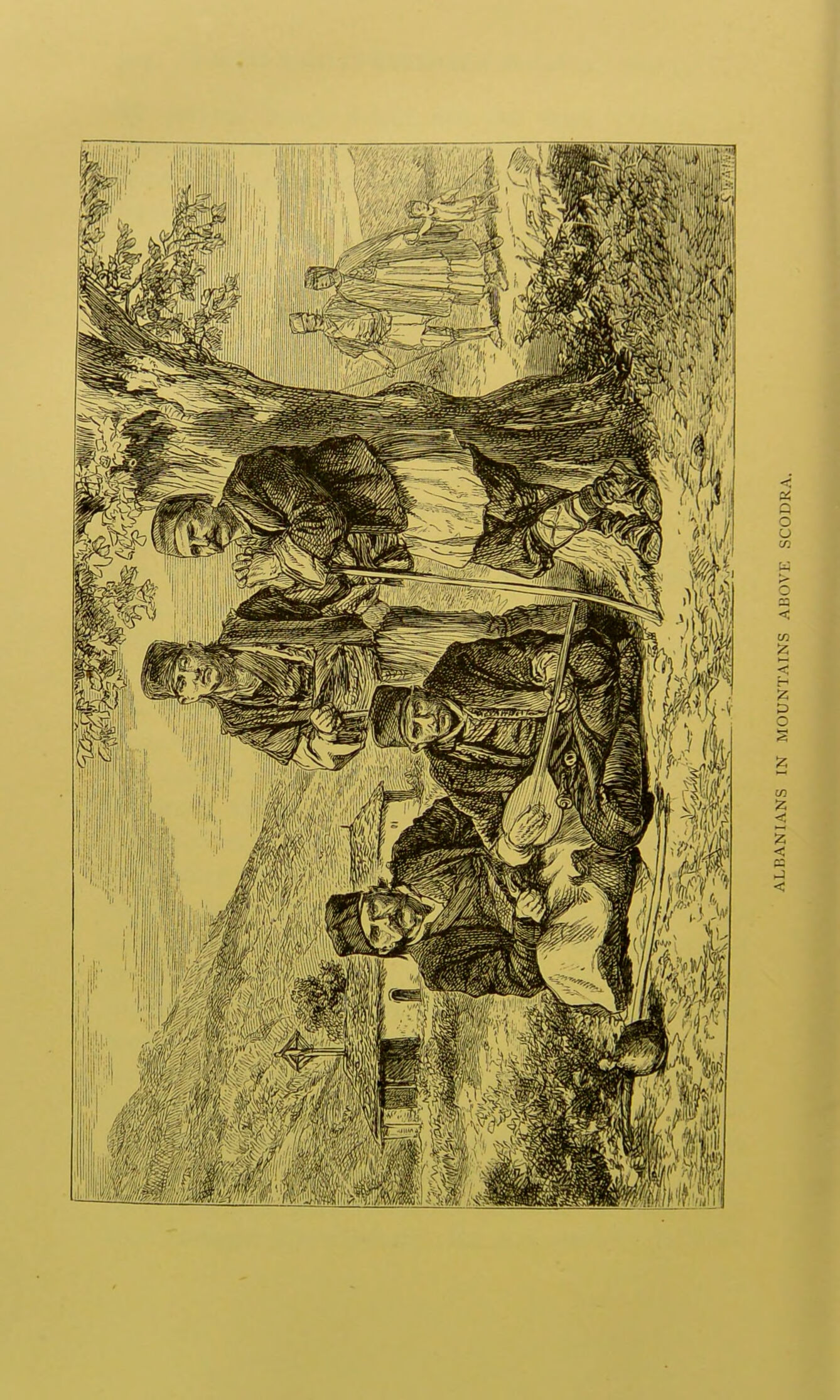He was most probably born in Prishtina around 1760, although exact details of his birth have not yet been found.1 In archival records, he first appears in 1785, alongside his brother Ibrahim Pasha Gjinolli and other brothers Mustafa, Rashid, and Jahja.2 In a series of letters during the summer of that year (June–July), Maliq and his brothers are accused of looting and persecutions in the areas of Gora, Dukagjin, Vushtrri, and Prishtina. The brothers, apparently under the leadership of their elder brother Ibrahim, are at the head of a larger band of rebels from Llapi and Gollaku. In one of the letters, it is stated that their father was a certain Hysrev, commander of Gora, the place from which the family also came.3 Jashar Pasha Gjinolli, Maliq's grandson, in his waqf document written in 1836, says that his grandfather was named Hysrev Gjinolli, which further confirms the information in the aforementioned document.
Attacks by Albanian outlaws and bandits in the Prishtina area are also mentioned in 1788 and 1789, but these letters do not mention names. The name of Ibrahim Gjinolli is mentioned for the last time in August 1785.4 A few years later, in 1789, we encounter for the first time the title pasha associated with Maliq Gjinolli, perhaps immediately after the death of his brother Ibrahim Pasha. Holding this title, he led the Sanjak of Prishtina, which also administered Artana and Vushtrri, and from time to time he was also the leader of the Sanjak of Skopje, but always maintaining his headquarters in the city of Prishtina.
In 1809, he participated in the Ottoman battles against the Serbian uprising. For his role in these battles, he has often become a character in songs or Serbian chronicles of the time. Meanwhile, in 1812, Antoine Vas, the French vice-consul in Prishtina during his short tenure in the city, provides this first impression after meeting the Pasha of Prishtina:
“The Pasha was expected to arrive in Prishtina on August 27. Assuming I would find him in a very good mood towards me, I gladly agreed to join others on horseback to meet him. This was suggested to me by Kurshid Bey, the kapıcıbaşı, and cousin of Jashar Pasha and Maliq Pasha. The company of horses was tasked to ride ahead of Maliq Pasha and watch the race organized in honor of Jashar Pasha's wedding. We set off at 5:30 in the morning and at 7 we met the group accompanying Maliq Pasha. We dismounted; Maliq Pasha’s followers stopped. I was introduced to the host, and I began to greet him, but he didn’t wait for me to finish my sentence. He began to say: 'Good, good, but I am very sorry that I could not find you a residence. Your letter reached me as I was leaving on a journey. I could not delay my departure, but I instructed Jashar Pasha to accommodate you in our residence and to take care of all your friendly needs. Otherwise, I see that you have arrived and welcome. I will make sure that you find a house, and since you will be staying here for a long time, we will see each other often, and every day with pleasure!'”
He led the Sanjak of Prishtina, which also administered Artana and Vushtrri, and from time to time, he was also the leader of the Sanjak of Skopje, but always keeping his headquarters in the city of Prishtina. Protests against him in Prishtina and the surrounding area are known from 1821 and 1822.5 The old clock tower of the city, which once stood near the Çarshia Mosque, according to accounts from residents at the end of the 19th century, is mentioned as having been financed by Maliq Pasha at the beginning of that century.6 He died on December 19, 1823, under unknown circumstances.7
-
1
Since he holds the title of pasha since 1789, he must have been of some age. As a warrior, he appears in archival records even before 1785, so Maliq's date of birth should be sought somewhere between 1760-1765. For Malik Pasha's life, see also Iljaz Rexha (2016). Disa të dhëna arkivore për familjet mesjetare Gjinaj nga Novobërda dhe familjen fisnike të Jashar Pashë Gjinollit si pasardhëse e tyre. In Gjurmime Albanologjike (46), p. 25–58; Also Урош Шешум (2020). Паше из породице Джиноли (Жин-Огли) у 18. и провој провови 19. века. In Serbian Studies, XI, p. 11–41.
-
2
Arkivi i Prishtinës, BOA. AE. SABH. I. 258/17357, August 18, 1785. There is no doubt that one brother, Jashar Pasha's father, was named Bahtijar, but he does not appear in this part of the papers.
-
3
AP. BOA. C. DH. 330/16471, 10 qershor 1789.
-
4
AP. AE.SABH.I. / 258 / 17357, August 18, 1785, the father's name and place of origin are mentioned here; Another letter that talks about the turmoil caused by Ibrahim with his brothers, AP. AE.SABH.I./ 263 / 17749, June 13, 1785.
-
5
The main Ottoman documents on this event were published by the Kosovo Archives in 1969, see Omer Nakicevic (1969). Revolt and protest march of the inhabitants of Kosovo in 1822. Prishtina: Archive of Kosovo.
-
6
"A Prishtina told me that the clock tower of Pristina was built by Maliq Pasha, the father of Jashar Pasha," see В. Kariћ (1894). Кроз гробље, опажъа и белешке приликом путовања кроз српску земљу под турском 1892. годе. In Дело, лист за науку, къижевност и стравлени живот (3), 50.
-
7
AP. BOA. HAT 708/33928 C, December 19, 1823. In this letter sent by Jashar Pasha, Maliq's death is announced, and at the same time a request is made for his replacement by his nephew, Jashar himself. The former Serbian consul in Pristina, Todor Stankovic (see documents), in some of his later memories, said that in the house of the Gjinolli family, Maliq's bloody shirt from the time he was killed was still kept. The circumstances of this death are still unknown.




